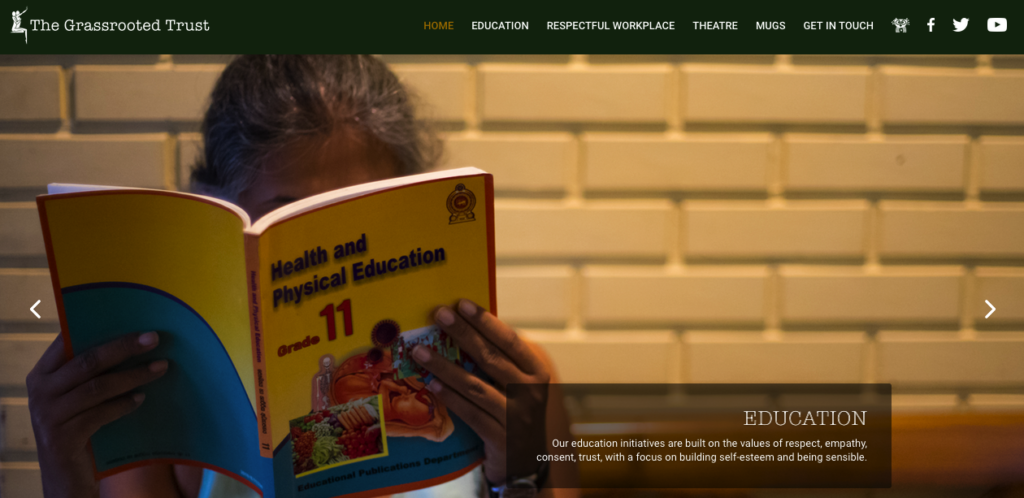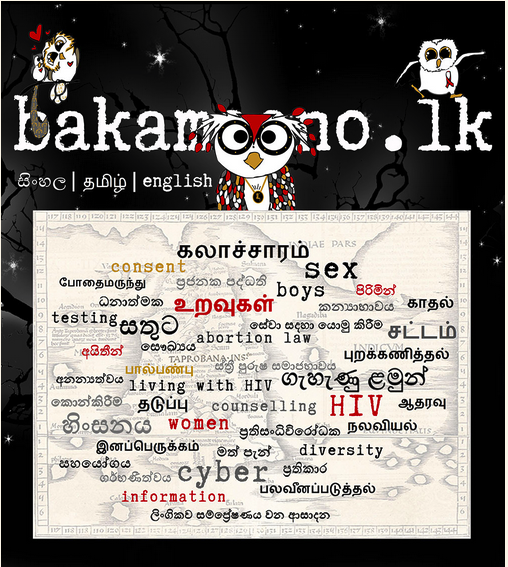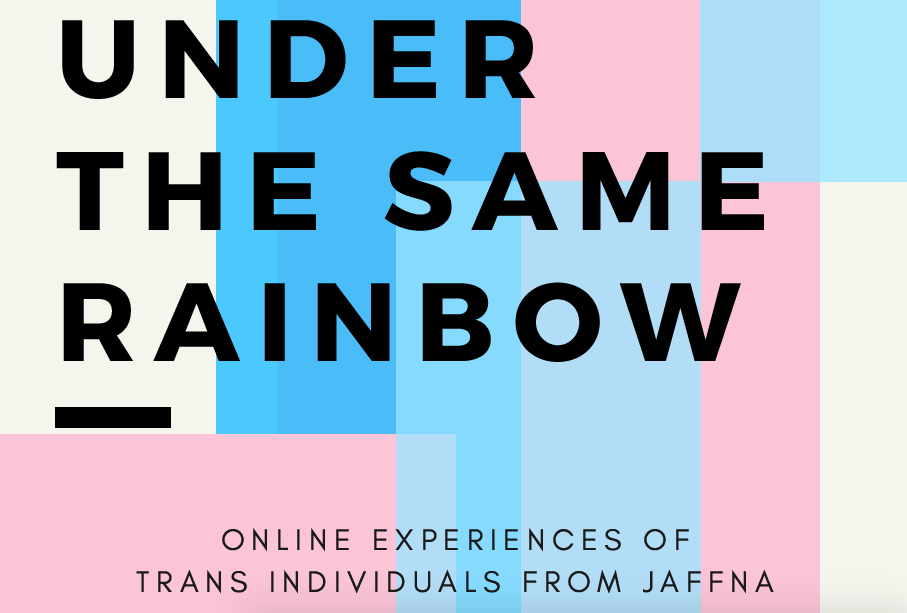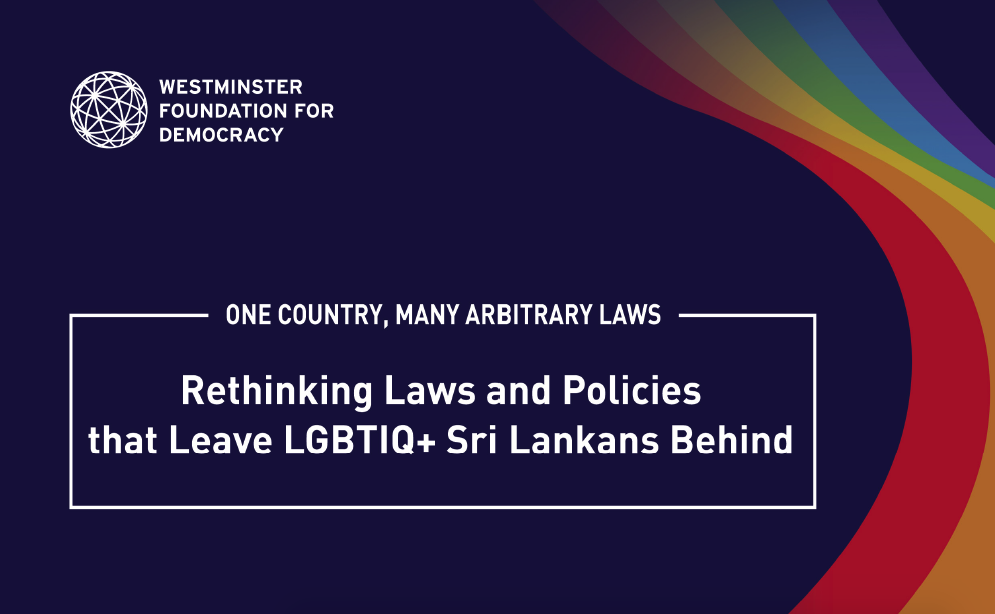Providing safe spaces for the community - online and offline: Dharini Priscilla, Sri Lanka
By Tharindi Devasurendra – Tuesday, December 7, 2021

Dharini Priscilla is an activist from Sri Lanka, also known as the pearl of the Indian Ocean. She is a 25 year old youth activist who works on issues around cyberbullying, digital violence, and creating safe spaces online. Currently, Dharini works as a Gender Consultant and Researcher and was the Program Manager of The Grassrooted Trust, an organization that focuses on sexual and reproductive health and rights in Sri Lanka (2016-2021).
Dharini was also the editor of bakamoono.lk (in Tamil), a comprehensive online education platform that offers scientific and updated information on HIV, sexual health, gender and relationships, and violence prevention (2016-2021)
During COVID-19, she began designing and conducting capacity building programs that had to be implemented online. The programs mainly revolve around online violence and cyberbullying, catering to educational, media, and corporate institutions. Since early 2020, she has also been involved in multiple research studies both in an organizational and personal capacity that touched upon subject matters such as the experiences of the LGBTQ community and gendered online hate speech.
Since the start of the pandemic, Dharini has switched and managed to carry out her work and responsibilities using digital platforms. As someone who travels a lot for work around the country, she has found it incredibly difficult to work from the confines of her own home – especially in the long term. She also found it challenging to establish and maintain her connections with grassroots communities since many of the people she worked with did not have a steady internet connection. She refrained from engaging in any face-to-face interactions until she was fully vaccinated and ceased all work-related travelling. But since Sri Lanka did not start vaccinating youth (ages 19-30) until September 2021, it took her quite a while to get back to her regular work routine.
Like most activists who have been struggling to balance their work from home and their mental health, Dharini has faced her share of struggles. She has had to utilize creative outlets such as writing to express her emotions, which she believes has helped immensely during the last two years. Still, she could strategically prioritize her mental health by reducing her workload and identifying coping mechanisms to deal with the stress. She mentions that reducing her online time helped greatly since she was growing increasingly tired of interacting with a screen the entire day. She also acknowledges the support she received from her family and friends who kept checking up on her and encouraging her to take it easy.
Dharini has been working primarily with youth, schools, media organizations, corporate organizations, and research institutions. Her work has been chiefly knowledge-based through capacity building in these groups. She has conducted training programs on digital safety, and online security for youth since the prevalence and manifestations of cyber violence dramatically increased during the pandemic. This has been a challenge for all members of the LGBTQ community, especially those most vulnerable within the community itself. Many encounter situations concerning sharing intimate pictures with their partners or engaging in cybersex due to the nature of laws such as Section 365 of the penal code. She highlights that this is discrimination that cannot and should not be taken lightly. “As long as it is consensual, everyone has the right to explore and express their sexuality on digital and physical platforms,” she added.
This access to information and resources has allowed these target groups to be safer and sensible online. Similarly, she has also conducted awareness sessions for corporate organizations to train their employees to shift from a physical working space to a digital working space by emphasising digital etiquette and cyber safety, which she believes has made the transition smoother. Dharini received a small grant in 2020 from the Association for Progressive Communications (APC) to carry out her content building and research work on online violence. This funding has been beneficial for her to carry out her current position in the field since she could not pay her partners and other stakeholders involved in the process.
Sri Lanka is a country with diverse ethnic groups, primarily Sinhalese, Tamils, Moors, Malays and Burghers, of which Sinhalese are the majority. As a Tamil queer woman, Dharini emphasises the importance of utilizing an intersectional approach to ensure that we understand the complicated nature of intertwined identities. For example, when working on LGBT advocacy, she primarily focused on working with queer communities outside of Colombo, especially in Tamil-speaking areas – since these communities are often left behind in more significant conversations due to so-called language and geographic barriers. She has also taken an interest in working more with Muslim women to learn more about the challenges and experiences of this group. She expresses her wishes to be more inclusive in the future since she wants to work with communities that go beyond her own identity. Dharini also mentions that the digital approach has not been as efficient as it should be, especially in healthcare, as there was a de-prioritization of sexual and reproductive health needs during the pandemic. Even when accessing sexual and reproductive health products or medication, she has noticed that some communities (such as the transgender community) face more challenges than others.
When concluding our discussion, Dharini says that, instead of figuring out how to help all communities or how not to leave them behind, it is essential that we ask these communities for their opinions. “We have a habit of assuming what kind of help and support these communities need instead of listening to their voices and prioritizing their concerns,” she explained. “I believe that the best approach, simply put, is to listen better,” she added.
Quote: “Even when we identify and work with vulnerable communities, we are often limited to our definition of what we mean by “vulnerable” or “communities”. We should begin by defining these groups and figuring out who goes where – but this process should not be done by one person or one organization. It should be figured out in a holistic manner where people are allowed to define who they are and identify where they belong in this spectrum.”
Share post






